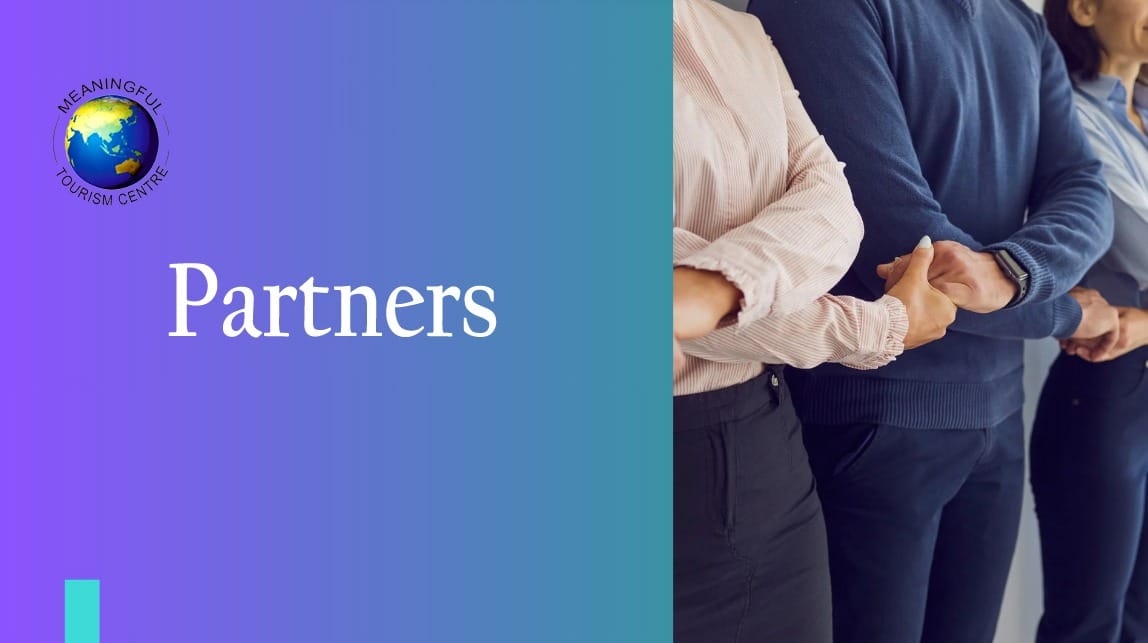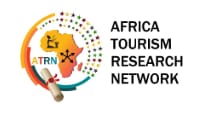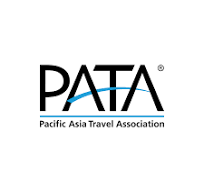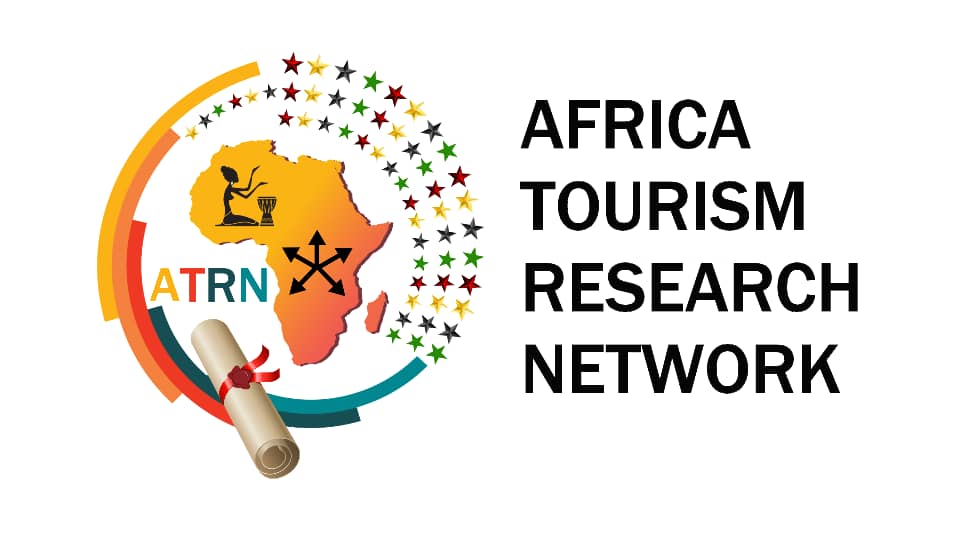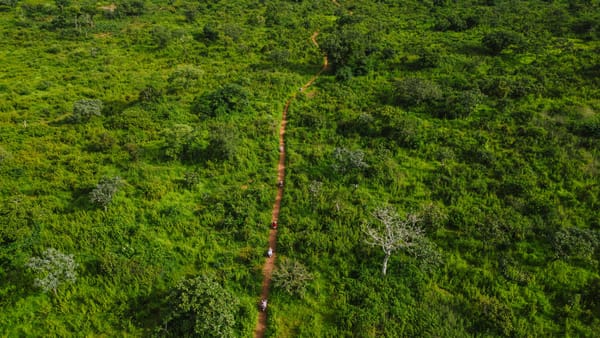Meaningful Tourism in Africa

Dear reader,
The Africa Tourism Research Network ATRN, the Meaningful Tourism Centre and the Institute for Tourism are in the middle of the last preparations for the webinar Redefining African Travel: A Webinar on Meaningful Tourism for Sustainable Development in Africa, which will be provided live on Zoom, Youtube and Instagram on Thursday the 19th of June, Juneteenth day, starting at 10 am GMT.
Please participate to meet the seven African Certified Trainer for the Meaningful Tourism Transformational Game Workshop including Emmanuel Frimpong, the founder of the ATRN and six VIPs who are shaping the development of tourism in Africa.
Africa’s tourism sector holds immense potential to contribute to economic development, cultural preservation, environmental sustainability, and community empowerment. However, conventional tourism models often fail to create lasting value for all stakeholders, including host communities and the environment. With the shift in global tourism trends toward more sustainable, equitable, and enriching transformational experiences, accordingly Meaningful Tourism become increasingly relevant.
The webinar seeks to position Africa as a pioneer in Meaningful Tourism by sparking dialogue among stakeholders, sharing best practices, and fostering partnerships that align with the continent’s unique cultural and environmental heritage.
The webinar takes place on the 19th of June, Juneteenth Day, celebrating the official end of slavery in the USA in 1865, 160 years ago, a significant day for Africa.
Please find the names of all speakers and the link to participate for free in the “Events” section below.
Furthermore, also during the coming week, a new article will be published entitled “The Meaningful Tourism Paradigm – A Tool for Sustainable Tourism Development in Times of Crises and Challenges”.
Your humble editor had the honour to be invited to write this article for the Bali Journal of Hospitality, Tourism and Culture Research (BJHTCR). The journal disseminates academic research spanning a broad spectrum of topics including hotel and restaurant management, tourism marketing and policy, sustainable and alternative tourism practices, as well as in-depth cultural studies. The Editor-in-Chief is Assoc. Prof. I Nengah Subadra of the Faculty of Business, Tourism and Education University of Triatma Mulya, Bali/Indonesia.
Triatma Mulya University or UNTRIM was started in 2019 by joining seven Higher Education Institutions together to form UNTRIM with the goal to educate new professional, expert and knowledgeable manager for the tourism industry. The Main Campus is situated on the edge of Denpasar City.
The article is becoming available in the new edition, which can be found online here: https://ojs.baliacademicpublishing.com/index.php/balijournalhtcr
The Conclusion of the article reads: “Meaningful Tourism emerges not merely as another sustainability label, but as an essential paradigm shift for tourism’s survival and relevance in an era defined by climate crisis, shifting demands, and post-pandemic realities. It directly addresses the critical limitations of previous approaches – their focus on sacrifice, vague future goals, fragmented stakeholder consideration, and lack of tangible incentives for behavioral change. By grounding itself in Positive Psychology and explicitly recognizing all six core stakeholders (Visitors, Host Community, Employees, Businesses, Governments, Environment), Meaningful Tourism moves beyond zero-sum trade-offs. Its core strength lies in demanding simultaneous objective benefits and subjective satisfaction for every group, demonstrably measured through SMART KPIs. This provides a concrete, positive alternative to "sustainability fatigue," replacing narratives of restriction with mutual flourishing.
The paradigm acknowledges tourism as a human right while tackling systemic industry flaws like seasonality and poor working conditions by aligning stakeholder interests through better value propositions – meaningful experiences for guests, dignified careers for staff, resilient businesses, tangible community benefits, effective governance, and environmental stewardship. Institutional adoption, like PATA's vision, underscores its practical relevance. Meaningful Tourism offers the actionable framework urgently needed to rebuild tourism as a resilient, equitable, and genuinely beneficial force for all stakeholders facing unprecedented global challenges.”
The world is full of bad news, so your humble editor is happy to provide you with two positive things to look forward to for the coming week: A webinar looking at the rising star of global tourism, Africa, and 5,000 words providing a solid answer to the question What is Meaningful Tourism?
As always, all the best from Prof. Dr. Wolfgang Georg Arlt and the whole Meaningful Tourism Weekly team!

Editor: Prof. Dr. Wolfgang Georg Arlt

Webinar Being Organized by the Meaningful Tourism Centre, the Africa Tourism Research Network and the Institute of Tourism
PATA and MTC to Host Webinar on Meaningful Tourism


On July 8, 2025, PATA and the Meaningful Tourism Centre will co-host a 90-minute webinar titled “A Meaningful Pacific Asia Tourism Economy” at 3 p.m. Bangkok Time. The event will spotlight new priorities for the region’s tourism industry.
The session will explore how Meaningful Tourism—recently adopted as PATA’s Vision—can support community wellbeing, cultural preservation, and environmental sustainability while redefining long-term success in tourism.
Aimed at a wide range of tourism professionals and stakeholders, the webinar will showcase best practices and promote collaboration across sectors to create more resilient and values-based tourism economies.

Meet the Trainers for the Meaningful Tourism Transformative Game Workshop:
 Biubwa Omar is a visionary entrepreneur and advocate for sustainable tourism, women’s empowerment, and economic development in Zanzibar, Tanzania.
Biubwa Omar is a visionary entrepreneur and advocate for sustainable tourism, women’s empowerment, and economic development in Zanzibar, Tanzania.
As Chairperson of the Zanzibar Women Chamber of Commerce (ZWCC), she champions gender equality, fostering opportunities for women-led businesses through training, market access, and financial literacy programs. As Managing Director of Safari Gateway Ltd, Biubwa crafts unforgettable safari and beach holiday experiences, promoting responsible travel that supports local communities and preserves Tanzania’s natural and cultural heritage.
A Board Director in the Tourism Cluster at the Zanzibar National Chamber of Commerce (ZNCC), she drives strategic initiatives to enhance Zanzibar’s global competitiveness as a sustainable tourism destination. Biubwa is also a pioneer in Halal tourism, working to establish Zanzibar and Tanzania as leading Muslim-friendly travel destinations.
Passionate about creating impact-driven solutions, she builds strategic partnerships to attract investment, strengthen business networks, and empower women and youth, shaping a vibrant future for Zanzibar’s tourism and economy.
Biubwa Omar’s work embodies a commitment to sustainable tourism, empowering communities, and fostering economic growth through innovative and inclusive practices.
The Meaningful Tourism Weekly explores:
"What is the current situation of tourism in Tanzania and Zanzibar, and how can the Meaningful Tourism paradigm help support its development?"
her answer...
Tourism in Tanzania, including Zanzibar, continues on a steady growth trajectory, reflecting the country’s rich diversity of natural wonders, cultural heritage, and historical significance. In the post-pandemic era, the sector has rebounded strongly, with rising visitor arrivals from both traditional markets like Europe and emerging ones such as the Middle East and Asia. Zanzibar, in particular, has become a hotspot for investment in luxury and mid-range accommodations, drawing travelers to its idyllic beaches, vibrant Swahili culture, and UNESCO World Heritage-listed Stone Town. Meanwhile, mainland Tanzania remains globally renowned for its national parks — Serengeti, Mikumi, and Nyerere (Selous) — where the growth of eco-lodges and sustainable safari camps signals a shift toward responsible tourism practices.
Both the Government of Tanzania and the Revolutionary Government of Zanzibar are committed to developing tourism sustainably. Joint initiatives are underway to promote cultural sensitivity, safeguard heritage sites like Kilwa and Bagamoyo, and empower indigenous communities, including the Maasai and Hadzabe, ensuring they are active participants in the tourism value chain.
In this context, the Meaningful Tourism paradigm offers a timely and strategic framework. By emphasizing purposeful travel that respects local culture, preserves the environment, and ensures economic and social benefits for host communities, Meaningful Tourism aligns seamlessly with Tanzania’s broader development goals. It supports efforts to reduce poverty, create employment, and nurture pride in the country’s unique identity and traditions.
Prioritizing value-driven, impactful travel experiences over mass tourism can help Tanzania and Zanzibar attract more responsible and conscientious visitors. Meaningful Tourism fosters deeper engagement between travelers and local communities, transforming tourism into a powerful tool for inclusive development and long-term sustainability.
“As Tanzania and Zanzibar look to the future, Meaningful Tourism provides an essential pathway to a more resilient and equitable tourism sector.”
Biubwa (Khamis) Omar
Meaningful Tourism Transformational Games Trainer for Tanzania and Zanzibar | Meaningful Tourism Centre
Trainers Around the World
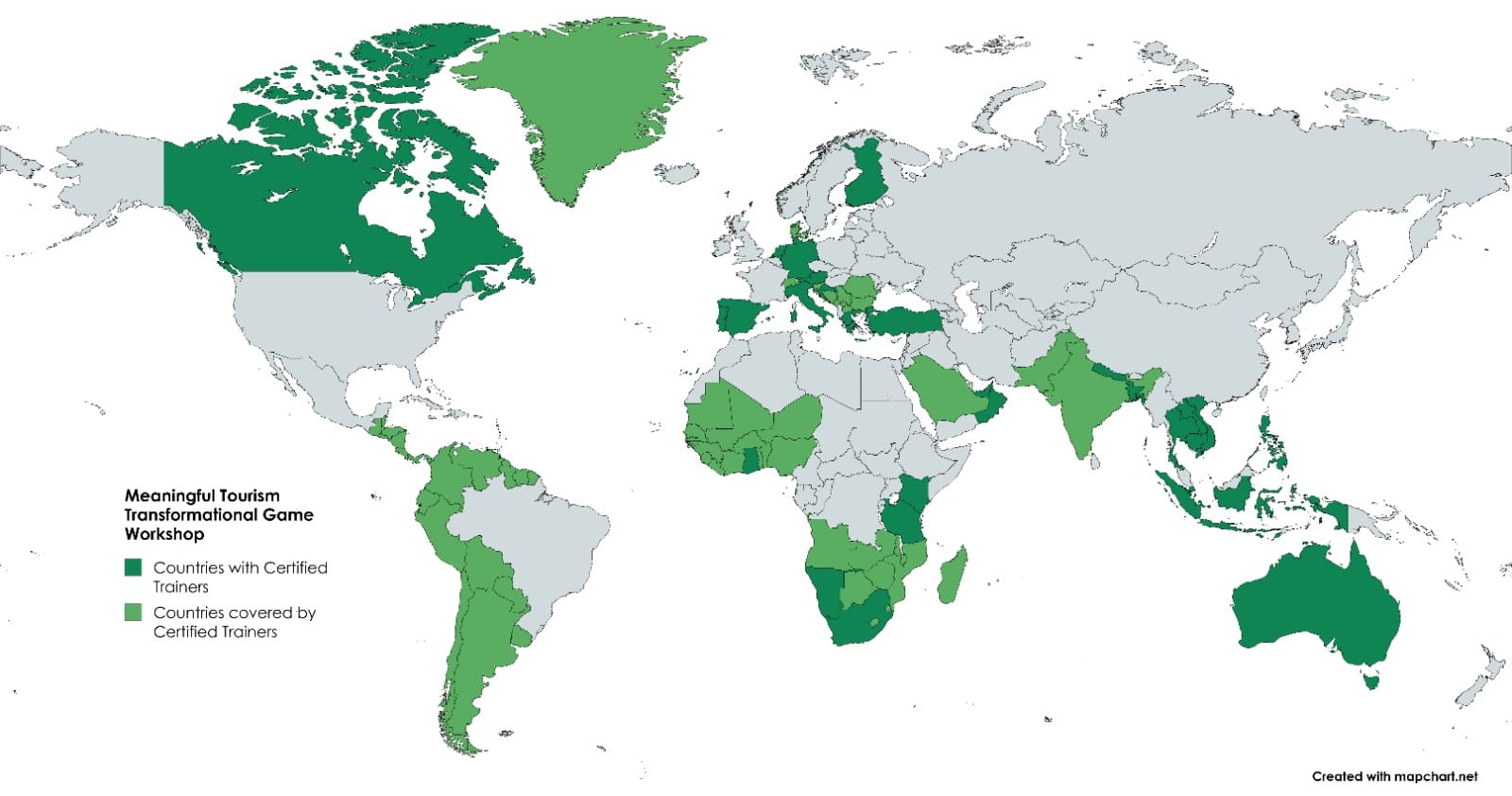
MTC is happy to invite more persons to become certified trainers and offering Meaningful Tourism Transformational Game Workshops in countries or regions not yet covered. If you have experience as a trainer and interest to support sustainable tourism, please contact us.

Pinzgauer Wohnstube – A Meaningful Response to the Housing Challenge
Addressing the Local Housing Crisis in a Tourism Landscape

In the picturesque municipality of Leogang, nestled in Austria’s Pinzgau region, a pressing issue was emerging. As tourism flourished, so did the number of second homes and the cost of living—making it increasingly difficult for local residents to find affordable housing. In response, the Pinzgauer Wohnstube project was launched as a bold and thoughtful solution aimed at preserving the social fabric of the community.
Uniting Unlikely Partners for a Shared Purpose
What makes this initiative truly inspiring is the collaboration behind it. The municipality spearheaded the creation of a dedicated infrastructure company, enabling cooperation among a diverse range of stakeholders: the local cable car operator, the tourism board, and the Raiffeisen bank. Together, they contributed financial resources and sector-specific expertise to develop new housing tailored specifically to the local population.

A Sustainability-Driven Foundation
Sustainability was embedded into the project’s DNA from the start. The building was originally designed to meet climate-active standards, incorporating environmental principles into construction and planning. While some green technologies—such as photovoltaic panels and heat pumps—could not be fully realised due to budgetary limitations, the framework laid important groundwork for future sustainable housing in the region.
Navigating Challenges and Learning from Missteps
The process was not without its challenges. Coordinating between partners unfamiliar with the housing sector demanded patience, trust-building, and a strong emphasis on shared values and communication. One critical lesson emerged around the sensitive issue of land sales. In small alpine communities, selling land can generate intense debate, with expectations that property should remain in local hands. This experience underscored the importance of transparent dialogue and community trust in projects that touch on deeply rooted social dynamics.
Real Impact and Future Replicability
Despite setbacks, the project successfully delivered housing for 8 to 15 residents—each unit now fully occupied. Beyond its immediate success, Pinzgauer Wohnstube offers a replicable model for other tourism-intensive communities facing similar housing pressures. The infrastructure company created through the initiative stands out as a flexible vehicle for future projects—whether in housing, childcare, or sustainable mobility.
Looking Ahead: Innovation and Citizen Participation
As the project evolves, its focus is shifting toward even greater sustainability and community involvement. Plans are underway to revisit and enhance energy systems, while new citizen-financed investment models are being explored to deepen local engagement and ownership.
A Living Example of Meaningful Tourism
Ultimately, the Pinzgauer Wohnstube illustrates how meaningful tourism can be more than just an ideal—it can take shape in bricks and mortar. It is a compelling example of how tourism stakeholders can work beyond their traditional domains to support the well-being of host communities. By embracing collaboration, sustainability, and a willingness to learn from challenges, Leogang has set a standard for how tourism can contribute to truly meaningful regional development.

For more information on the latest Meaningful Tourism news, we recommend looking at the following information from our partners and colleagues:
TRAVELLERS
Global Quest for Healing Through Travel

Cameron Mofid Travel
Cameron Mofid, a San Diego native, turned to travel to manage his obsessive-compulsive disorder (OCD), finding freedom in the unpredictability of new destinations. Starting at 20 during the COVID-19 pandemic, he set out to visit all 195 UN-recognized countries, completing his journey in North Korea in April 2025—potentially as the youngest to do so. Each trip, from Yemen’s ancient streets to Nigeria’s vibrant communities, helped him embrace uncertainty, easing the grip of OCD.
Mofid’s travels also inspired Humanity Effect, a nonprofit aiding children in Nigeria’s Makoko village. His story, shared with CNN Travel, shows how travel can transform personal struggles into resilience and global impact, inspiring meaningful journeys for others.
HOST COMMUNITIES
Host Communities in Kashmir Call for Supportive Tourism Revival Measures

Kashmir Tourism Revival
Host community voices are urging the Kashmir government and industry to act—resuming direct flights (e.g., IndiGo’s June 16 Srinagar–Kolkata service), implementing caps on hotel rates, and introducing financial incentives like waiving airport fees—to stimulate visitor inflows and stabilize livelihoods. Drivers are now accepting fares as low as ₹3,000 for routes previously costing ₹5,000, while eateries offer special deals to attract guests.
With campaigns such as “Chalo Kashmir” and “Rally for Valley” and active government-industry negotiations, residents hope to bring tourism back by September, leveraging new assets like the Vande Bharat Express over Chenab Bridge to rebuild traveller confidence and support the region’s economy.
EMPLOYEES
Hotel Staff Strikes Amid Overtourism Tensions in Spain

Hotel Strikes Spain
Hotel workers in Mallorca, Ibiza, and Menorca are gearing up for significant strike action in the summer of 2025, threatening major disruptions for tourists visiting these popular Balearic Islands. The planned walkouts, scheduled for June 6 and extending through July, are led by the UGT union, the largest in the hospitality sector, as a response to ongoing issues including low salaries, lack of affordable housing, and the overwhelming influx of tourists.
The strikes aim to pressure the Balearic hotel industry for better wages and working conditions, with union leaders warning of a multi-day strike in July if no agreement is reached. This follows a broader wave of anti-overtourism protests across Spain, with locals and workers frustrated by the strain on resources and infrastructure.
COMPANIES
Airbnb’s Push into Experiences

Airbnb Experiences
Airbnb is aggressively expanding beyond its core short-term rental business by relaunching its Experiences platform and introducing hotel-style à la carte services, such as massages, spa treatments, and personal training, to position itself as a comprehensive travel platform. The company’s redesigned app emphasizes personalized, seamless experiences tailored to user preferences, leveraging detailed user profiles to act as a digital travel concierge.
Airbnb is betting on experiences and hotel-style services to redefine itself as a one-stop travel platform, challenging hotels to adapt to shifting consumer demands. While hotels remain skeptical of Airbnb’s ability to deliver consistent quality, they recognize the need to address technological and operational shortcomings to compete effectively in an increasingly blended hospitality landscape.
GOVERNMENTS
Spanish Government Enforces New Tourism Rules in Response to Overtourism

Spanish Tourism Rules
In response to growing concerns over overtourism and its impact on local communities and the environment, the Spanish government has introduced a series of strict regulations in key tourist hotspots, including the Balearic Islands. The new rules prohibit public alcohol consumption in streets, parks, and beaches, limit the availability of alcohol in shops between 9:30 pm and 8 am, and cap all-inclusive resort guests to six alcoholic drinks per day—three at lunch and three at dinner.
Tourists are now required to carry valid identification at all times, and fines are being enforced for infractions such as walking shirtless in town centers, building large sandcastles, or urinating in the sea.
ENVIRONMENT
Lake Louise Champions Global Sustainability Summit

Lake Louise Summit
Virtuoso convened over 100 travel advisors and partners from nearly 20 countries at its inaugural Global Impact Summit held at Fairmont Chateau Lake Louise from June 2–5, 2025. The summit focused on integrating sustainability into luxury travel by exploring three core pillars: supporting local economies, celebrating culture, and protecting the planet.
Through expert panels, interactive sessions, and immersive local experiences, participants shared best practices and innovations in responsible tourism. The event achieved carbon neutrality by offsetting 64.6 metric tons of CO₂, reinforcing Virtuoso’s commitment to environmental stewardship in the high-end travel sector.

Webinar: A Meaningful Pacific Asia Tourism Economy

Organised by: Pacific Asia Travel Association (PATA) & Meaningful Tourism Center (MTC)
Date: Tuesday, July 8, 2025
Time: 3:00 PM Bangkok | 9:00 AM London | 1:30 PM India | 4:00 PM Singapore | 6:00 PM Sydney
Duration: 90 minutes
Format: Live Webinar
Join us for an insightful webinar exploring a values-driven approach to tourism in the Asia Pacific. Learn how to prioritize community wellbeing, cultural preservation, and sustainability for a resilient tourism economy.
Introduced at the PATA Annual Summit 2025, the Meaningful Tourism vision encourages stakeholders to redefine success beyond arrivals and revenue, fostering inclusive and sustainable growth.
“A Meaningful Pacific Asia Tourism Economy” was adopted as PATA’s new Vision Statement at the 2025 Annual Summit, marking a bold step toward reimagining the future of tourism in the region.
Don’t miss this opportunity to shape a meaningful future for Asia Pacific tourism. Register now!


Meet Our Esteemed Speakers

About Meaningful Tourism Weekly
Meaningful Tourism Weekly is published every Thursday by the MTC Meaningful Tourism Centre (London and Kathmandu). This newsletter delivers a rich blend of content to its readers, designed to inspire and inform the global tourism community.
Each issue features the Meaningful Tourism Weekly Editorial, updates on MTC activities, a Best Practice example, a portrait of an MTC-certified trainer, news about upcoming events, and occasionally additional op-ed pieces from guest authors. Carefully selected news items, including videos and podcasts with links to original sources, are also included. These are categorized according to the six main stakeholders of tourism and hospitality as defined by the Meaningful Tourism paradigm: Traveller/Guests, Host community, employees in tourism and hospitality service providers, service providing companies, governments, and the environment.
Subscription to Meaningful Tourism Weekly is free, with no advertisements. Subscriber names and details are never shared with third parties, ensuring complete privacy.
Sponsorship opportunities are available for those interested in supporting this initiative.
For those keen to explore the work of the Meaningful Tourism Centre—offering trainings, market research, product adaptation, consulting services, conferences, strategy development, and marketing—visit our website www.meaningfultourismcentre.org or contact us at info@meaningfultourismcentre.org.
